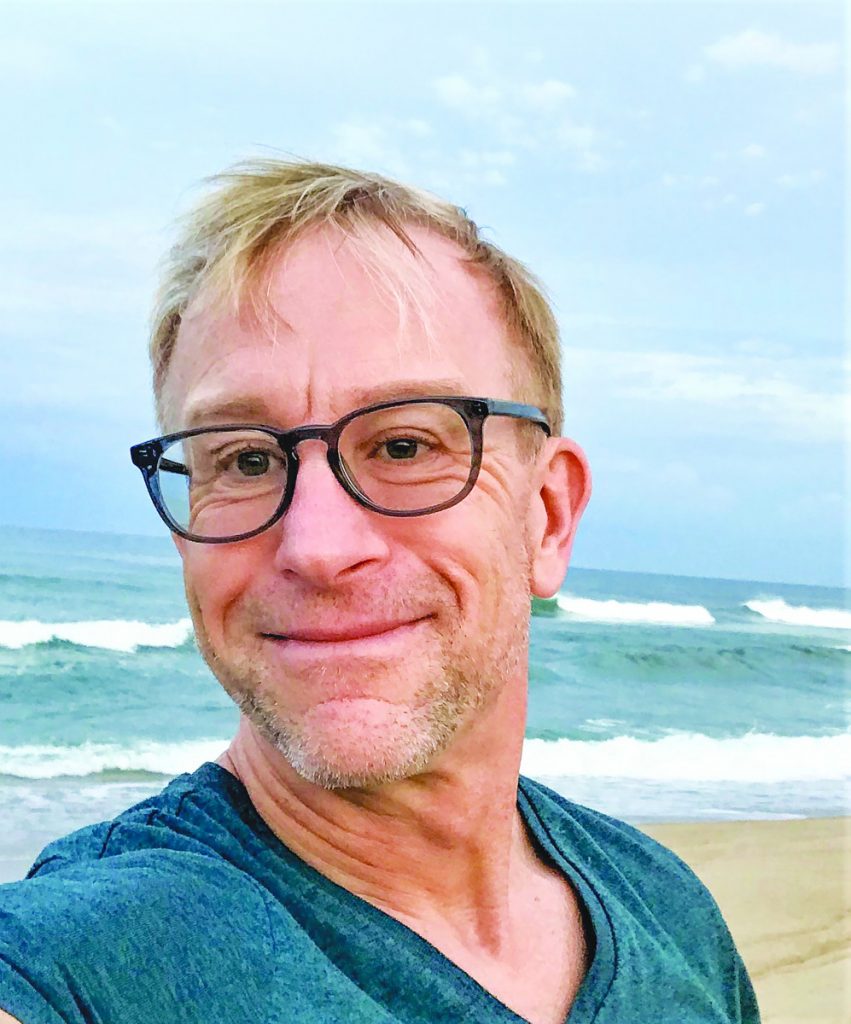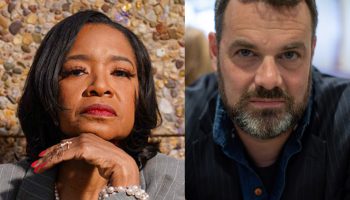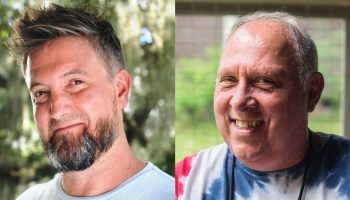Climate scientists are increasingly finding that committing to credible climate action and decarbonization means going beyond climate neutrality to net-zero carbon dioxide emissions.
Climate change presents a profoundly complex planetary health problem with exceedingly high existential costs if fossil fuel producers and consumers continue to ignore or minimize hard truths and consequences, and insist on business and life as usual.
Yet, what is essential for understanding carbon dioxide — and for changing hearts and minds — is simple enough for an abbreviated “climate change 101” textbook. The World’s Littlest Book on Climate: 10 Facts in 10 Minutes about CO2, a thin black book with a spectacular image of Earth on the cover, is available free of charge at Chautauqua Bookstore and elsewhere on the grounds.
With these 10 facts and others at hand, the Chautauqua Climate Change Initiative, directed by Mark Wenzler, is honing in on climate education, stewardship and justice.

At 9:15 a.m. Thursday, July 7, at the Chautauqua Women’s Club, as part of its Chautauqua Speaks series, Wenzler will discuss “Charting Chautauqua’s Path to Net-Zero Carbon.”
Growing up in Bergen County in northeastern New Jersey, Wenzler said he traveled south to visit family in Elizabeth, New Jersey, which is one of America’s greenest cities, according to Popular Science magazine.
“There were a lot of refineries,” he said. “I have a distinct memory of driving through there as a kid and being assaulted by the smell and view, but also of the beautiful parts of New Jersey with woods and streams, and gravitating to those places.”
As a politically progressive high school graduate who “wanted to make the world a better place,” Wenzler said he got involved in the anti-nuclear movement as a student at Providence College in Providence, Rhode Island.
Attending law school at Syracuse University “felt like a continuation of that fight for justice,” he said. “I was not really equipped for that with a BA, and a law degree felt like the way to do that.”
Because Syracuse had a combined Juris Doctor/MA program, where students can simultaneously earn a law and humanities degree, Wenzler was able to earn a master’s in international relations with the option of a doctorate at its renowned Maxwell School of Citizenship and Public Affairs. Wenzler decided to go there.
“I took environmental law my second year of law school and was asked to be the research assistant for the environmental law professor,” he said. “Through learning about environmental law, I gravitated to that in my master’s. My thesis was on the integration of economic and environmental policies in the European Union.”
The summer after his second year, Wenzler got a fellowship at the United Nations in New York. He said he spent his time there doing deep research in U.N. files about liability for environmental disasters. The Bhopal gas tragedy had occurred in December 1984, and he wanted to know how to hold people accountable.
Wenzler said that his first job after graduation was for the New Jersey Department of Environmental Protection, where he focused on gasoline regulation policy.
“I realized that what I really wanted to do was be a trial lawyer, so after two years I moved over to be a deputy attorney general in the environmental law enforcement unit,” he said. “In New Jersey, that was a big deal. We actually had a bigger environmental unit than the feds.”
While prosecuting environmental cases, Wenzler had an array of interesting experiences.
“I got to do cool stuff. Organized crime was involved,” he said. “I got to go around the state doing trials (and) stakeouts for some of the biggest polluters in New Jersey.”
Wenzler was involved in the Standard Tank Cleaning Corp trial, State v. Standard Tank, of 1995.
“The Frank family was taking sewage in at one end of tankers and letting it out into New York Harbor (untreated) at the other end,” he said. “I got to convince the bankruptcy court that the case should be transferred to New Jersey from New York. Standard Tank tried to intimidate us.”
After former New Jersey Governor Christine Todd Whitman talked about using the same model that Wenzler had written about in his master’s thesis, he wrote New Jersey’s first integrated environmental economic plan.
After working in New Jersey for seven years, he landed a job in Washington — where he had been wanting to work for years — with a national nonprofit public interest law firm, Trial Lawyers for Public Justice, that eventually changed its name to Public Justice. He said that like the nonprofit Public Citizen, it is a Ralph Nader organization.
At Public Justice, Wenzler said he worked for four years on “citizen environmental suits representing disenfranchised communities around the country.”
This experience was, however, disillusioning.
“You could work on a case for years and a judge would dismiss it into a technicality,” he said. “As good as it felt to make a change for one person and community, I had grander ideas.”
In Washington, as a trial lawyer, Wenzler began to get more involved with policy and volunteering because the National Resources Defense Council was his client, and they wanted to achieve systemic change.
He gave talks, chaired the Washington chapter of the Sierra Club, and “co-led a major campaign to get Metro to change from dirty diesel to clean fuel bus technology.”
After serving as a litigator for 11 years, Wenzler joined the National Environmental Trust, now the Pew Environment Group at Pew Charitable Trust, where he directed the climate and energy programs.
“It was a very difficult transition from thinking like a trial lawyer in a very methodical way to lobbying,” Wenzler said. “I had to be deprogrammed. … I learned how to be a policy advocate. We were trying to pass the first-ever climate bill (and) we came very, very close, within one vote … in the Senate.”
After five years at the National Environmental Trust, Wenzler began creating and managing programs on climate change, energy development, air and water pollution, landscape conservation, and sustainability at the National Parks Conservation Association. He served there as senior vice president for conservation programs before leaving in 2021 to head up the Chautauqua Climate Change Initiative.
“There’s a lot of buzz about net-zero carbon,” Wenzler said.
New York passed the Climate Leadership and Community Protection Act in 2019, bringing the global climate change movement to the state.
“What does that mean for us?” he said. “What is net-zero carbon? What does it mean for New York, and what might it mean for Chautauqua?”
As of summer 2022, the Institution has not adopted a net-zero policy, but Wenzler does not rule it out as a future possibility.
For now, Wenzler said that he is trying to raise the level of understanding on sustainability efforts in Chautauqua. He points to work being done on the grounds, in operations and with the buildings; he also focuses on non-carbon electricity and solar power at Chautauqua.
“As there’s this global, national, state-wide conversation on net-zero,” Wenzler said, “let’s take stock of where we are — on the progress we have made.”




